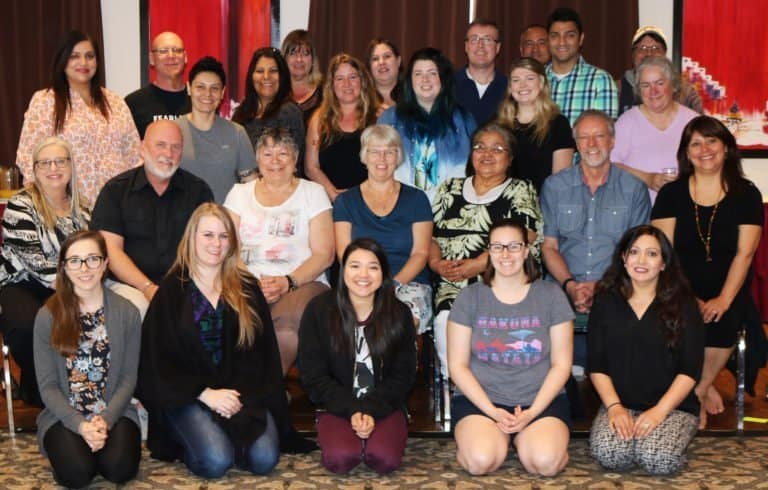As part of WJS Canada’s Truth and Reconciliation Journey, employees in Alberta and in BC were invited to participate in the Kairos Blanket Exercise. The Kairos Blanket Exercise is experiential exercise that teaches Indigenous history – the version that’s rarely taught or known. The exercise is one of the key steps to reconciliation and covers around 400 years of history in one hour. Theresa Gebrail, communications specialist for WJS, participated in the BC exercise and shares her experience below.
We’re nearing the end of the Kairos Blanket Exercise and the meeting room floor is a mess of folded over, bunched-up blankets. My colleague, one of the few remaining on the blankets, is trying, without a lot of success, to balance herself on a blanket. It’s been folded over so many times that I am worried she’s going fall over.
It’s been a few weeks since I participated in the Kairos Blanket Exercise with my colleagues and I am having a hard time wrapping my head around the experience.
When the exercise began, the blankets were laid out neatly on the floor. The blankets represented Turtle Island, or pre-colonial Canada. We were invited to wander about on the blankets and greet each other. There was a lot of movement, laughter, camaraderie. Our Elder, Kelly White (Musqueam) in the role of the white man, read snippets of history. Shona Lee Shuter (Syilix) was our Indigenous facilitator, and she told the story from the Indigenous perspective. Some of us were given scrolls to read.
I was killed off very early, so I was able to observe most of the exercise from the outside. As the exercise progressed, the blankets got smaller and smaller. People left the blankets, victims of small pox, disease, malnutrition, and murder. The hour covered about 400 years of history – colonialism, treaties negotiated in bad faith, residential schools, Indian hospitals, the 60s scoop, banning of Indigenous languages and ceremony. Cultural genocide. In 1920, Duncan Campbell Scott, Minister for Indian Affairs, mandated school attendance for Indigenous children. He said: “I want to get rid of the Indian problem.”
Think of all those things that ground us, that define us, that give us meaning and purpose: family, friends, culture, language, traditions, home. For Indigenous people, all those things were systemically and systematically taken away.
The cheerful chatter that was present earlier was gone, replaced by silence. I am trying not to get emotional as I type this, but I am struggling. I think of moments in the exercise-the look on my colleague’s face when he was given a blanket and told it was infested with smallpox. Children returning from residential schools as adults only to discover their families’ backs turned to them. Kelly, our Elder, sharing the story of her premature birth – her mother, while pregnant with her, suffered a traumatic incident, forcing her into early labour.
There was a moment at the end when Kelly and Shona unfolded a few corners of some of the blankets, representing hope for the future.
It wasn’t enough for my colleague though, who still struggled to find her balance.
